
Related
We speak with Australian Senator Peter Whish-Wilson, a prominent supporter of WikiLeaks founder Julian Assange, who says the publisher’s case is “a big deal” in the country that cut across political divisions. “It’s taken a really big campaign, a really big grassroots campaign by thousands of people in Australia — indeed, millions of people around the world — to bring this to the attention of politicians.” Assange landed in Australia Wednesday after pleading guilty to a single charge of violating the U.S. Espionage Act, allowing him to avoid further prison time after years of legal jeopardy.
Transcript
AMY GOODMAN: This is Democracy Now!, democracynow.org, The War and Peace Report. I’m Amy Goodman in New York, with Juan González in Chicago.
WikiLeaks founder Julian Assange is a free man, home in Australia. He landed in the capital of Canberra on a chartered jet from Saipan, where a U.S. district court judge sentenced him to time served after he pled guilty to a single felony count of illegally obtaining and disclosing national security material. We just played excerpts of the news conference with his wife Stella Moris Assange and his lawyers.
For more, we’re joined here in New York by Jameel Jaffer, director of the Knight First Amendment Institute at Columbia University. He was previously the ACLU’s deputy legal director. His piece in Just Security is headlined “The Assange Plea and Press Freedom.” And in the capital of Australia, where Julian Assange just landed, Canberra, we’re joined by Peter Whish-Wilson, Australian Greens senator for Tasmania in the Australian Federal Parliament since 2012. He co-founded the Bring Julian Assange Home Parliamentary Group.
We are going to begin with you, Peter Whish-Wilson, in Canberra. If you can talk about the response to Julian Assange being freed and what it meant? I mean, we saw today news conferences of the prime minister, who made this a top issue when he met with President Biden. If you can talk about this, with Prime Minister Albanese, and what it took to free Julian Assange?
SEN. PETER WHISH-WILSON: Yeah. Thanks, Amy.
Look, it’s a big deal here. It’s been splashed across the media in Australia the last 24 hours, the fact the prime minister has done two press conferences in the last 24 hours on this. It’s taken a really big campaign, a really big grassroots campaign by thousands of people in Australia — indeed, millions of people around the world — to bring this to the attention of politicians.
It’s taken a long political pathway here in Australia. We established a parliamentary — a cross-parliamentary friends group six years ago. There was only two of us when we started. It’s got over 60 members now. And we have good representation across the Australian Parliament. We’ve seen the House of Representatives, our version of Congress, pass a motion, voting unanimously for Julian Assange to be freed.
And, of course, last time I spoke on Democracy Now!, I was in Washington with a cross-party delegation, an unusual delegation of politicians from Australia, who were meeting with senators and congresspeople in the U.S. We met with the Department of Justice. We met with the State Department and other stakeholders to plead the case to drop the extradition and free Julian Assange. So, it’s been a long road for a lot of people.
And, of course, none of this could have happened if we hadn’t have changed government in Australia just over two years ago. The new Labor government, with Anthony Albanese as our prime minister, had done a lot of work behind the scenes. And I think it’s very fair to name up the fact that our ambassador to the U.S., Kevin Rudd, the previous prime minister here in Australia, has played a pivotal role in this outcome, as has our U.K. high commissioner, Stephen Smith in the U.K. So, I think it’s — our government showed a lot of conviction and courage. I wasn’t sure they had it in them a few years ago. But they have. They’ve been consistent. There’s been a lot of quiet diplomacy behind the scenes.
And, I can tell you, people here are very relieved. It still feels a bit surreal and a bit overwhelming after such a long campaign, but more than two-thirds of Australians in recent polls — in fact, higher numbers than that — have supported bringing Julian Assange home. So, yes, it’s a very big deal.
JUAN GONZÁLEZ: And, Senator, I wanted to ask you: When you went to Washington in last September, did you expect that your diplomacy would bear this fruit so quickly? And do you think the enormous support of the Australian public and the Australian government, especially given how the United States, in its pivot to Asia, is increasingly reliant on an alliance with Australia in the region, did that have an impact, as well?
SEN. PETER WHISH-WILSON: Look, I think the close relationship between our two countries has been very important in getting this outcome. The U.S. ambassador to Australia, Caroline Kennedy, made a public statement tonight that they welcome Julian Assange’s return home to Australia. Obviously, I find that a bit rich, as someone who’s campaigned to free Julian. He should never have been put in this situation in the first place. You know, we’ve had a — we’ve obviously had a win for Julian and his family in the last 24 hours, but it hasn’t been a win for journalism and free press.
When we came to the U.S., I think what surprised us, I think I shared with you the very morning we arrived. But when we left, what surprised us was that some of the, you know, [inaudible] institutions like the Department of Justice hadn’t really cottoned on to just how much public sentiment had changed in Australia. A number of things had happened in Australia in recent years. We had had our own war crimes trials and disclosures, our special forces, you know, the kind of things they had been getting up to in Afghanistan, which shocked our nation. And it also showed us the value of whistleblowers, and how that information came to light was really important. There’s been a number of factors that have led to changing sentiment here towards freeing Julian Assange. So, I think these all played a role.
But, you know, look, I suppose it has happened quickly, in some sense, Juan, but given how sick Julian Assange has been, the significant concerns we’ve had for his health, I think we were very anxious to get an outcome as quickly as possible.
And, you know, I do think you heard it in the extracts from the press conference there. I think we felt that once the U.K. High Court, only very recently, only a few weeks ago, had decided to hear a full appeal against Julian Assange’s extradition on substantive grounds, not just very kind of narrow legal scope, which we had seen on previous court cases, was probably what shifted the dial where the U.S. came to the table.
So, yeah, we’re glad it’s all over, but, you know, five years in solitary confinement in Belmarsh Prison, and many years prior to that in solitary confinement in an embassy, it’s been a very long road for Julian Assange. And yeah, I’m [inaudible] at the moment, so you’ll have to forgive me, but we’re very glad he’s home.

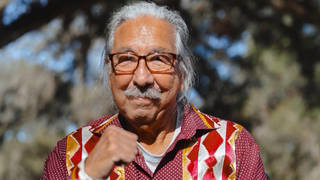
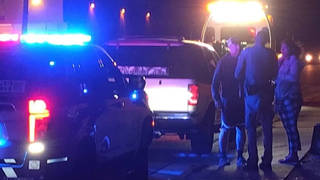

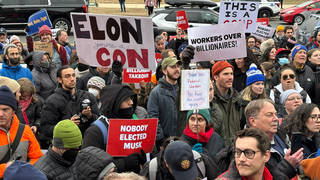





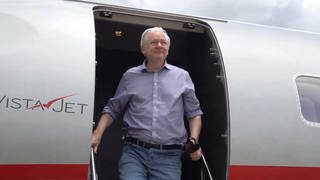
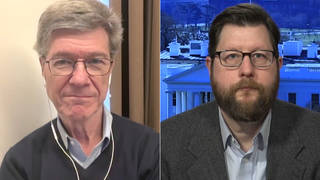
Media Options